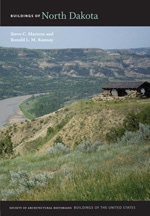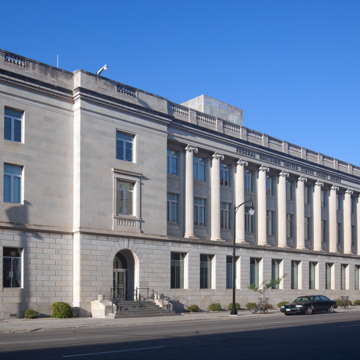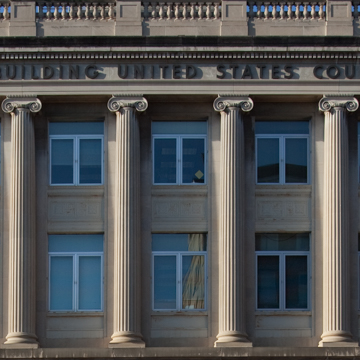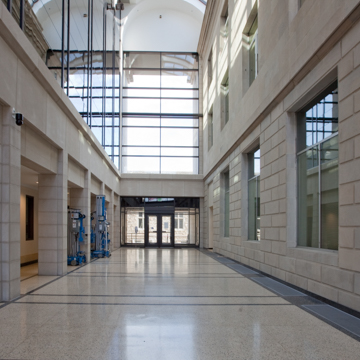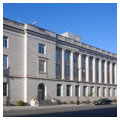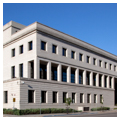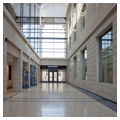You are here
U.S. Courthouse (U.S. Post Office and Courthouse)
This Renaissance Revival building, with its repetitive grand-order Ionic columns, balustraded parapet, and Indiana limestone exterior, originally contained post office functions, but now serves only judicial purposes. In the late 1980s there was an initiative to construct a new federal courts facility that would have eviscerated two or more blocks of N. Broadway commercial frontage. Instead a new judicial wing, named for North Dakota’s U.S. senator Quentin N. Burdick, was added to the existing building. The addition’s modernist design is appropriately sympathetic to the historic structure in a somewhat more restrained and severe manner than the original. Courtrooms are indicated by broad barrel vaults rising above the roof.
Writing Credits
If SAH Archipedia has been useful to you, please consider supporting it.
SAH Archipedia tells the story of the United States through its buildings, landscapes, and cities. This freely available resource empowers the public with authoritative knowledge that deepens their understanding and appreciation of the built environment. But the Society of Architectural Historians, which created SAH Archipedia with University of Virginia Press, needs your support to maintain the high-caliber research, writing, photography, cartography, editing, design, and programming that make SAH Archipedia a trusted online resource available to all who value the history of place, heritage tourism, and learning.














